The MIAS Blog: News and Views about Ibn Arabi
More Recent Posts
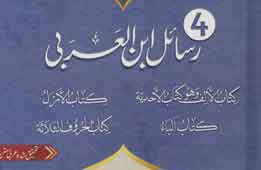
Rasail Ibn al Arabi – new editions
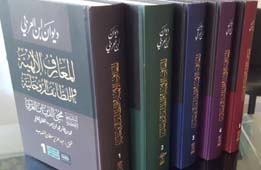
Critical Edition of Ibn ‘Arabi’s Diwān
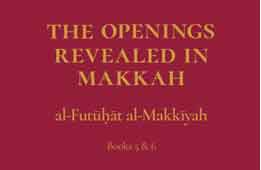
The Openings Revealed in Makkah
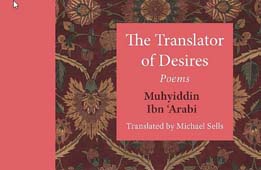
Translator of Desires – Michael Sells
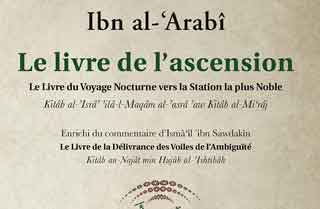
Ibn al-‘Arabî – Kıtâb al-’Isrâ
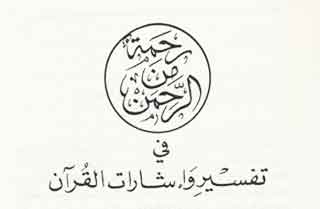
Shaykh Mahmud Ghurab

From Chapter 52 of the Futūhāt
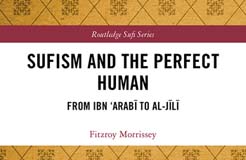
Sufism and the Perfect Human

Michel Chodkiewicz – A Legacy
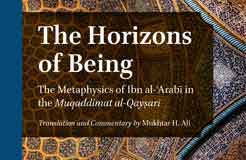
The Horizons of Being
Ibn ‘Arabi on Discovering and Deepening Compassion
James Winston Morris

His publications include: Openings:From the Qur’an to the Islamic Humanities (forthcoming); Approaching Ibn ‘Arabi : Foundations, Contexts, Interpretations (forthcoming); Ma‘rifat ar-Rūh in Nur Ali Elahi's Knowing the Spirit (2007), and The Reflective Heart: Discovering Spiritual Intelligence in Ibn ‘Arabī’s "Meccan Illuminations"(2005).
Articles by James W. Morris
Introduction to The Meccan Revelations
Ibn ‘Arabi’s “Short Course” on Love
How to Study the Futuhat: Ibn Arabi’s Own Advice
Hur Man Studerar Futuhat: Ibn Arabis Egna Råd (Swedish)
Ibn Arabi: Spiritual Practice and Other Translations – Overview of the ten following articles:
Some Dreams of Ibn Arabi (PDF)
Introducing Ibn Arabi’s “Book of Spiritual Advice” (PDF)
“Book of the Quintessence of What is Indispensable for the Spiritual Seeker” (PDF)
Ibn Arabi on the Barzakh – Chapter 63 of the Futuhat (PDF)
The Spiritual Ascension: Ibn Arabi and the miraj – Chapter 367 of the Futuhat (PDF)
The Mahdi and His Helpers – Chapter 366 of the Futuhat (PDF)
Ibn Arabi’s ‘Esotericism’: The Problem of Spiritual Authority (PDF)
Communication and Spiritual Pedagogy: Methods of Investigation (tahqiq) (PDF)
Rhetoric & Realisation in Ibn Arabi: How Can We Communicate Meanings Today? (PDF)
Listening for God: Prayer and the Heart in the Futuhat | Part 1
Listening for God: Prayer and the Heart in the Futuhat | Part 2
Listening for God: Prayer and the Heart in the Futuhat | Part 3
Listening for God: Prayer and the Heart in the Futuhat | Part 4
Divine Calling, Human Response – Scripture and Realization in the Meccan Illuminations | Part 1
Divine Calling, Human Response – Scripture and Realization in the Meccan Illuminations | Part 2
Opening the Heart: Ibn Arabi on Suffering, Compassion and Atonement
Ibn Arabi and his Interpreters – Overview of 28 articles and reviews in this section
Ibn ‘Arabi and his Interpreters I – Four overviews, description of the following:
Ibn Arabi; in the “Far West” (PDF)
Except His Face: The Political and Aesthetic Dimensions of Ibn Arabi’s Legacy (PDF)
Situating Islamic ‘Mysticism’ (PDF)
Ibn Arabi and His Interpreters — Grouping I:
Overviews
Ibn Arabi; in the “Far West” (PDF)
Except His Face: The Political and Aesthetic Dimensions of Ibn Arabi’s Legacy (PDF)
Situating Islamic ‘Mysticism’ (PDF)
“Ibn Arabi and His Interpreters”, JAOS article 1986 (PDF) | Part 1 | Part 2 | Part 3 | Part 1 (HTML)
Theophany or “Pantheism” – The Importance of Balyani’s Risalat al-Ahadiya
The Continuing Relevance of Qaysari’s Thought: Divine Imagination and the Foundation of Natural Spirituality
Review: La destinée de l’homme selon Avicenne: Le retour à Dieu (maad) et l’imagination by Jean Michot
Review: Kitab al-inbah ‘ala Tariq Allah de ‘Abdallah Badr al-Habashi
Review: La Risala de Safi al-Din ibn Abi l-Mansur ibn Zafir
Review: Manjhan, Madhumalati: An Indian Sufi Romance
Review: Mirror of the Intellect: Essays on Traditional Science and Sacred Art
An Arab “Machiavelli”? – Rhetoric, Philosophy and Politics in Ibn Khaldun’s Critique of “Sufism”
Review: Islamic Mysticism Contested: Thirteen Centuries of Controversies and Polemics
Review: Ibn Arabi and the Later Islamic Tradition: The Making of a Polemical Image in Medieval Islam
Review: Theodicy in Islamic Thought: The Dispute over al-Ghazali’s “Best of All Possible Worlds”
Ibn Masarra: A Reconsideration of the Primary Sources (PDF)
Podcasts and Videos by James W. Morris
Beyond Belief: Ibn ‘Arabi on the Perennial Challenges of Realization
“As for your Lord’s blessings, recount them!”: Ibn ‘Arabi’s Storytelling and Spiritual Communication
Becoming Real: Realization and Revelation in Rumi and Ibn Arabi
Whose calling, whose response? Ibn 'Arabi on Divine and Human Responsiveness
Opening the heart in the Futuhat
Few key terms in Ibn ‘Arabi’s work are more impossible to translate than rahma and its related forms, which often require very different English equivalents in different contexts. “Compassion” may come closest in interpersonal, human contexts, but that term usually fails to capture, for example, the ways this quality equally encompasses our manifold relations to every dimension of the creatural and natural worlds. In any case, for Ibn ‘Arabi, such scriptural terms are often simply springboards or “reminders” meant to awaken deeper levels of realization, insight, and effective action. This reflective process is beautifully illustrated in the following short passage from the penultimate chapter 559 of his Futūhāt,[1] summarizing the essential inner meaning (sirr) of chapter 339, “On the Inner Knowing of the Waystation of the Kneeling of the Path (sharī‘a) before the Reality (haqīqa)….”
His key point in this concise passage is that the path to the ultimate reality of full humanity lies above all in our realization of the all-encompassing divine Reality of God’s creative, loving Compassion (rahma) — in becoming a living instrument of the All-Merciful. Here the Shaykh pointedly contrasts his own distinctive guiding focus on the centrality of Compassion with widespread popular notions of spiritual perfection (for example, in the classical Sufi manuals) as a kind of “item-by-item” acquisition of a long list of separate spiritual virtues or divine qualities (takhalluq bi-akhlāq Allāh, or “taking on the character traits/qualities of God”).
The centrality of Compassion or absolute Lovingkindness (rahma) in Ibn ‘Arabi’s conception of the human soul’s inner movement from the Path to the Real is often expressed through his careful allusions to a powerfully compressed hadith concerning those who have actually become the living “instruments of divine Compassion” (al-rāhimūn):
“Those who have Mercy/Compassion, the All-Merciful has mercy upon them! So have mercy (plural imperative) on those who are on earth, and those who are[2] in heaven will have mercy on you all!”
And any allusion to that memorable hadith, in turn, must immediately evoke as well the corresponding famous Qur’anic verses on the “servants of the All-Merciful” (25:63-76), which so beautifully summarizes Ibn ‘Arabi’s understanding of the special spiritual role and rank of the afrād or malāmiyya among the Friends of God:
And the servants of the All-Merciful, those who walk upon the earth in humility, and when the ignorant ones address them (with hostility) they say “Peace!” /
And those who spend the night for their Lord/Sustainer, bowing down and standing;
And who say:“O our Lord/Sustainer, turn away from us the suffering of Gehenna…” /
And those who, when they give, are neither profligate nor grudging—for there is an upright place between that; /
And those who call not upon another god than God, and who kill not the soul which God has made sacred …. (continuing through verses 69-76).
From Chapter 559 of the Futūhāt
So because of that, “the true human being was created according to the form of the All-Merciful,”[3] (as explained) in chapter 339:
God only has mercy upon His servants the Merciful Ones (al-ruhamā’).[4] [Following the hadith “Those who have Mercy/Compassion (al-rāhimūn = al-ruhamā’), the All-Merciful has mercy upon them.]: So have mercy on those who are on the earth, so that the One Who is in heaven will have mercy upon you all!”
(This is because) “kinship” (or “the womb”: al-rahim) is a branch from (the divine Name) al-Rahmān, the All-Merciful—and the All-Merciful is the form according to which the fully human being (insān) was created. So whoever connects/puts into practice that kinship (i.e., whoever becomes an active living mirror of the All-Merciful) attains (the ultimate Goal of true, full humanity)—and he (the fully human being; but also “He,” the All-Merciful) is the actual-reality (‘ayn) of attaining that. But whoever cuts off (violates, does harm to) that kinship is cut off (from the All-Merciful)—and he is (likewise) the actual-reality of that breaking off (from God).
So the All-Merciful is what separates (that Adamic form of insān, through creation), and the true human being is what attains (the realized reunion with the All-Merciful). For the branch is (only) a piece (“cut off”: qit‘a). So scrutinize and reflect upon this Test![5]
So where is “taking on the character traits/qualities of God,”[6] for the person who is filled with thirst[7] and longing and yearning (for reunion with the Beloved)?! Indeed whoever separates that inner kinship (with the All-Merciful) does take on the character traits/qualities (of God). But whoever connects/realizes that kinship acts according to what the Real has prescribed (in the opening hadith of the rāhimūn here).
So if you break off from yourself that intrinsic kinship/relation (of compassion), then you fall behind/become separated. But if you connect/practice that connection with Him, then you become a fully realized embodiment of the Real (the All-Merciful).[8]
For that is how he (the Messenger) acted, and it was with this revelation (wahy) that he descended upon us.
Therefore if you do not take on those (divine) qualities/character traits in precisely this way, then you will not have fulfilled your Agreement (with God).[9]
For just as (this primordial kinship of rahma) is a branch of the All-Merciful, it is also a branch of you! So take (on that Adamic Form of Compassion) which He cut off from Himself, so that He may take back what you have (initially and shortsightedly) cut off from yourself.
This is the “licit magic” (of God’s transforming Love and Compassion)—not what is spoken of by those ladies behind the curtains who are still in the wombs (53:32), not yet (re)born; who are behind their veils (6:25, etc.),[10] so that they do not witness (the Real)!
Footnotes
[1] IV, 396, lines 4-10. Chapter 339 [= III, 150-154]; the “Kneeling” in this chapter heading refers directly to the verse 45:28 and the title of Sura al-Jāthiya, against the backdrop of verse 45:15.
[2] Or “the One Who is”: man = literally, “whoever.” But Ibn ‘Arabi emphasizes throughout the Futūhāt the vast profusion of angelic messengers and awliyā’ expressly devoted to the spiritual wellbeing and perfection of humanity.
[3] According to the famous hadith: “Adam was created upon the form of the All-Merciful.” Throughout this section, it is important to understand that the key Qur’anic term “fully human being” (insān), for Ibn ‘Arabi, refers not to the earthly human-animal (bashar), but to the entire knowable, manifest dimension of the divine—the cosmic reality referred to variously in his works as the “Muhammadan Reality”, divine “Intelligence”, and many other symbolic names. (See the famous chapter 1 of Ibn ‘Arabi’s Fusūs al-Hikam.)
[4] Alluding here to “the servants of the All-Merciful” (25:63) and to the divine Self-description as Arham al-Rāhimīn (12:64, 92; 21:83) and Khayr al-Rāhimīn (23:109, 118).
[5] Mihna: this suffering, ordeal, and “trial by fire” of our individual human being apparently cut off from its Source/true Form—and the discovery of true Mercy/Compassion/Love that only comes through that experience of separation and intrinsic suffering.
[6] Alluding to the famous Sufi maxim, often treated as a hadith: “Take upon yourself the attributes of God” (tukhulliqū bi-akhlāq Allāh), which is discussed at length throughout the Futūhāt (especially in the second fasl al-mu‘āmalāt, which largely follows the order of treatment of the spiritual virtues in Qushayri’s classic Sufi handbook, the Risāla). Ibn ‘Arabi’s remarks at this point highlight the intrinsic separation and sober attitude of asceticism and careful self-discipline which is usually assumed to underlie this process of ethical transformation. (See also n. 8 below, contrasting with tahaqquq.)
[7] Alluding here in the term mu‘attash (literally, “who is made to thirst”) to the suffering symbolized by thirst in the famous Divine Saying: “…My servant was thirsty, and you did not give him to drink….”
[8] A mutahaqqiq: i.e., the state of actually realized re-union with the Real described in the famous hadith of the supererogatory works and others constantly commented by Ibn ‘Arabi. In the traditional Sufi language of spiritual practice (n. 5 above), the stage of tahaqquq—which Ibn ‘Arabi repeatedly describes in his second major Part of the Futūhāt as a kind of “leaving behind” the classical spiritual virtues for a closer union with God—is seen as a final existential deepening of the initial practice of “imitation” (takhalluq) of the divine qualities and virtues.
[9] Referring to the famous Qur’anic account (7:172) of each human soul’s primordial covenant and “bearing witness” in acknowledging God’s role as Sustainer/Teacher/Lord: “Am I not your rabb?”
[10] Alluding to four Qur’anic verses (6:25; 17:46; 18:57; 41:5) dramatically describing God’s “veiling” of the eyes, ears and hearts of those who are therefore unable to understand or to see the reality of things. All of the long verse 53:32 is directly related to the lessons of this sirr.
